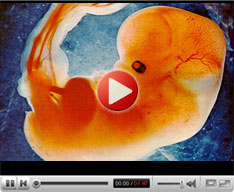
Know Infertitlity
Infertility treatments
Diagnosing InfertilityMale:
Obstetrics and Gynaecology
Infertility Treatment Services
Andrology |
KaryotypingKaryotyping is a test performed to examine and identify the number, size and shape of chromosomes in a cell sample. Extra, missing and chromosomes of abnormal size and shape are the potential causes of several genetic disorders and diseases in humans. Why is Karyotyping done?Karyotyping is performed to:
Karyotyping ProcedureKaryotyping test can be done on any tissue such as blood, amniotic fluid, bone marrow, placenta etc. However, in most cases blood is normally used. During pregnancy, amniotic fluid or placenta samples are used. When amniotic fluid is used, an amniocentesis is done. A bone marrow biopsy is required to obtain a bone marrow sample. The sample is placed in a dish and allowed to grow in a lab. The new cells are then taken from the sample, stained and various features such as the size, shape, and number of chromosomes are observed and examined under a microscope. The stained sample is then photographed to show the arrangement of chromosomes and this is referred to as a Karyotype. Many genetic defects can be identified by observing the arrangement and number of chromosomes. Indications of Abnormal ResultsAbnormal size, shape and number of chromosomes are potential causes of a number of genetic conditions such as:
|
Our TeamNews & EventsClinic LocationVideo Gallery |















